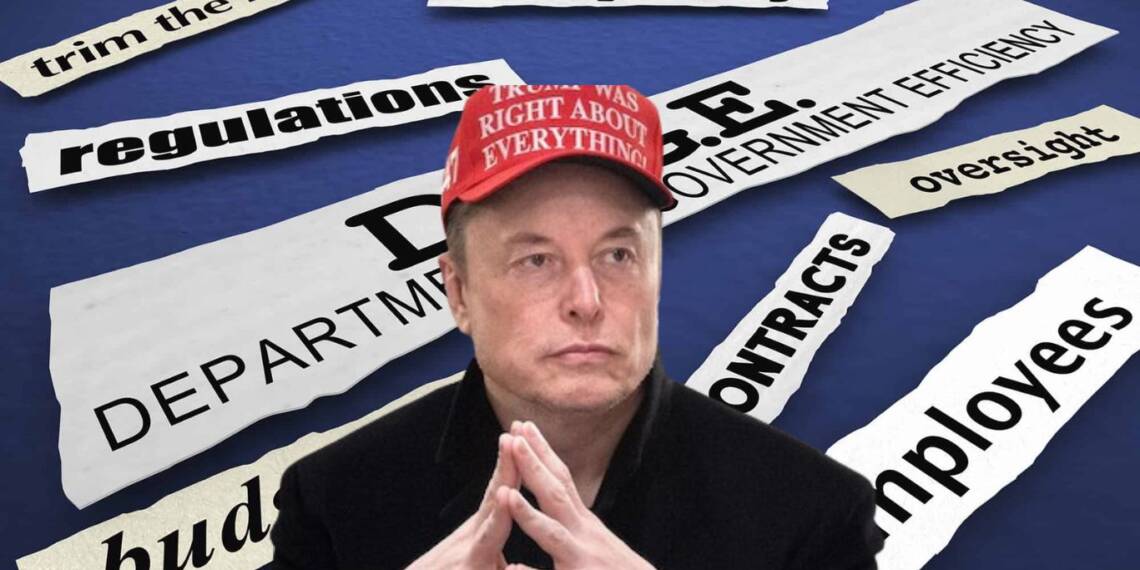After months in the spotlight as a symbol of the Trump administration’s bold promises to cut government waste, Elon Musk has stepped down from his role as a Special Government Employee (SGE), bringing a high-profile chapter in Washington politics to an end. His exit, coming just a day after he publicly criticized President Donald Trump’s flagship legislative proposal, marks a turning point—not only for Musk, but for the administration’s much-hyped efficiency drive.
In a post on his own social media platform, X, Musk wrote: “As my scheduled time as a Special Government Employee comes to an end, I would like to thank President @realDonaldTrump for the opportunity to reduce wasteful spending. The @DOGE mission will only strengthen over time as it becomes a way of life throughout the government.”
But behind the polished farewell message was a deeper story—one of frustration, ideological divergence, and the collision between big business and big government.
From Disruptor to Dissenter
Musk’s tenure began with fanfare earlier this year when he was tapped to lead the newly minted Department of Government Efficiency (DOGE). The goal was ambitious: to slash government waste and streamline sprawling federal programs. Trump hailed him as “a truly great American,” and MAGA loyalists quickly embraced Musk as an outsider who could “drain the swamp” in a high-tech way.
But things started to sour as Musk confronted the slow, grinding machinery of Washington bureaucracy. “The federal bureaucracy situation is much worse than I realised,” he told The Washington Post. “It’s an uphill battle trying to improve things in DC, to say the least.”
Though the DOGE launched high-profile efforts—including shuttering some USAID offices and cutting back on foreign aid—its grand $1 trillion savings goal never materialized. Internally, the project reportedly faced resistance from career bureaucrats, lawmakers, and even within Trump’s cabinet.
The Final Straw: A “Big Beautiful Bill” or a Budgetary Bomb?
Tensions reached a breaking point this week when Musk appeared on CBS and delivered a scathing critique of Trump’s legislative centerpiece—the so-called “big, beautiful bill.” Meant to be a sweeping reform that includes tax cuts and immigration changes, the bill also slashes clean energy incentives, trims social programs like Medicaid, and ironically, balloons the federal deficit.
“I think a bill can be big or it can be beautiful. But I don’t know if it can be both, in my personal opinion” Musk quipped during the interview.
His biggest gripe? The bill directly undercut the work of the DOGE by increasing spending. It also eliminated key provisions that affected Musk’s own companies, such as a $7,500 tax credit for electric vehicles and a new $250 annual fee for EV owners. Tesla’s first-quarter profits had already taken a beating, down 71%, and now Musk’s business interests were caught in the political crossfire.
His criticism drew immediate attention on Capitol Hill. Senator Ron Johnson of Wisconsin said, “I sympathize with Elon being discouraged.” Others were more muted, but privately acknowledged the strain within GOP ranks over the bill’s contradictions.
A Role That Was Always Temporary—and Tense
Musk’s official role was that of a Special Government Employee, a legal classification created to let the federal government temporarily benefit from private-sector expertise. These roles typically last no more than 130 days per year, are often unpaid, and carry strict rules to prevent conflicts of interest.
But with Musk’s sprawling business empire—Tesla, SpaceX, Neuralink, and more—the line between public service and private profit was always blurry. Critics pointed to possible conflicts early on, and Musk’s role became even more controversial when the administration announced sweeping tariffs in April. These tariffs triggered a global market drop, with Musk personally losing billions.
Back to Business, Less Politics
In recent days, Musk has signaled he’s done with Washington—for now. “I think I’ve done enough,” he said in a follow-up post on X, referencing his time in public service. He plans to return full-time to his private ventures, leaving the Beltway behind.
The White House, meanwhile, confirmed his departure quietly. “His off-boarding will begin tonight,” said a senior official who spoke on condition of anonymity.
Trump himself downplayed the rift, saying, “I’m not happy about certain aspects [of the bill], but I’m thrilled by other aspects of it.” He praised Musk’s contributions but did not indicate that he plans to revise the legislation in response to the criticism.
House Speaker Mike Johnson thanked Musk and vowed to continue DOGE’s mission, even as the administration sends new proposals to Congress to cut billions more in foreign aid and public broadcasting.
Legacy in Limbo
Whether Musk’s exit signals a shift in the Trump administration’s approach remains to be seen. What’s clear is that his brief but impactful time in Washington encapsulates the promise and peril of trying to import Silicon Valley efficiency into a deeply entrenched political system.
In the end, Musk may be returning to the world of rockets and EVs, but his whirlwind stint in the capital won’t be forgotten anytime soon. Washington may not have changed him, but he certainly left his mark on Washington.








